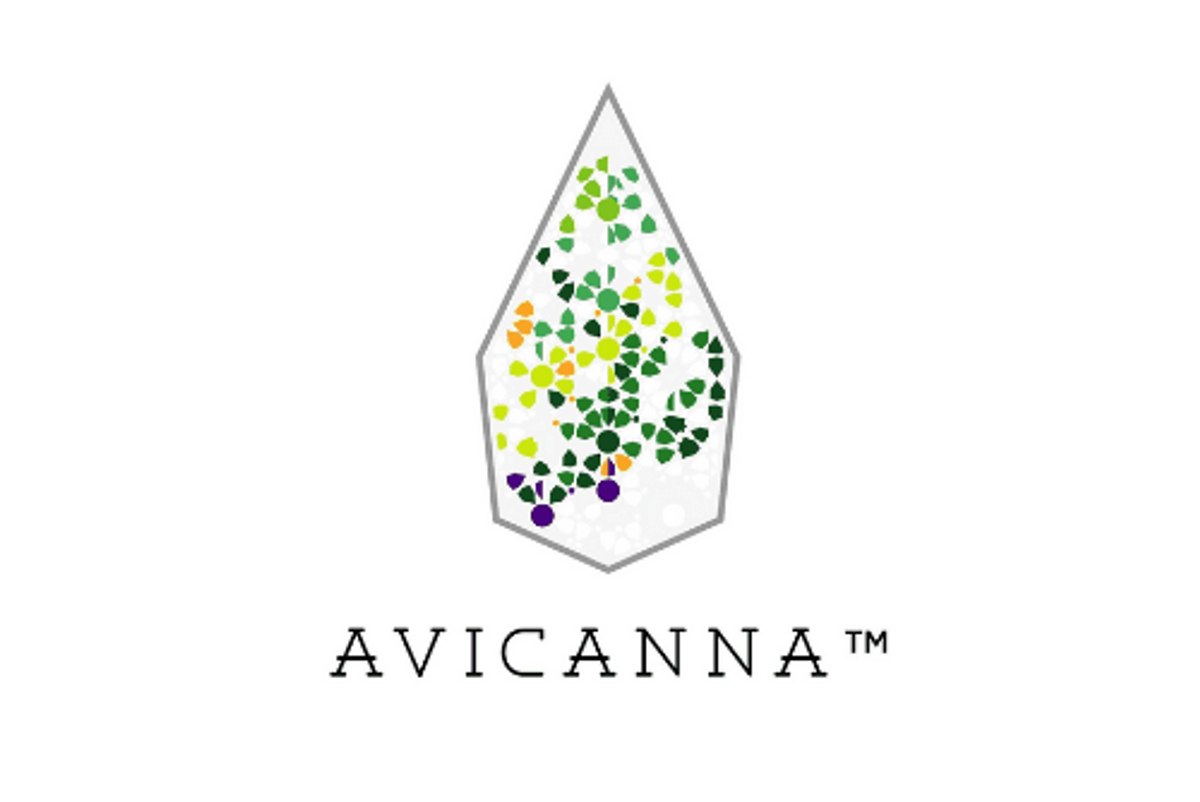/NOT FOR DISTRIBUTION TO UNITED STATES NEWSWIRE SERVICES OR FOR DISSEMINATION IN THE UNITED STATES. ANY FAILURE TO COMPLY WITH THIS RESTRICTION MAY CONSTITUTE A VIOLATION OF UNITED STATES SECURITIES LAWS/
Avicanna Inc. (the " Company " or " Avicanna ") (TSX: AVCN) (OTCQX: AVCNF) (FSE: 0NN) is pleased to announce that all of management's nominees listed in the Company's management information circular dated May 25, 2021 were elected as directors of the Company at Avicanna's annual general meeting of shareholders held on June 24, 2021 (the " Meeting "). The detailed results of the vote for the election of directors held at the Meeting are set out below.
| Name of Nominee | Votes cast FOR | % votes cast FOR | Votes WITHHELD | % votes WITHHELD | ||
| Aras Azadian | 14,238,710 | 99.94% | 8,851 | 0.06% | ||
| Dr. Chandrakant Panchal | 14,215,568 | 99.78% | 31,993 | 0.22% | ||
| Setu Purohit | 13,410,830 | 94.13% | 836,731 | 5.87% | ||
| Giancarlo Davila Char | 14,231,255 | 99.89% | 16,306 | 0.11% | ||
| Flavio Jose Zaclis | 14,238,710 | 99.94% | 8,851 | 0.06% | ||
| Dr. Assad J. Kazeminy | 14,238,710 | 99.94% | 8,851 | 0.06% | ||
| John McVicar | 14,238,710 | 99.94% | 8,851 | 0.06% | ||
At the Meeting, the Company's shareholders also approved the appointment of MNP LLP as the Company's auditors for the ensuing year and authorized the board of directors to fix the auditors' remuneration.
Introduction to the new board members
Dr. Assad J. Kazeminy is the founder and former President and CEO of Irvine Pharmaceutical Services Inc. and Avrio Biopharmaceutical LLC. Dr. Kazeminy received his doctorate degree in Pharmaceutical Sciences, graduate studies in Biochemistry and completed his post doctorate at the University of Southern California (USC) Medical School, Department of Pharmacology. Since January 2014, Dr. Kazeminy has been a member of the Chapman University School of Pharmacy (CUSP) Dean's Professional Advisory Group, has served as a member of the United States Pharmacopeia (USP) Console of Experts 2000-2020 and has been awarded by United States Pharmacopeia a Winner for Innovative Responses to a Public Health Challenge.
Flavio Jose Zaclis has more than 20 years of experience in private equity, venture capital and entrepreneurial projects. After completing several investment cycles, Mr. Zaclis founded Barn Investimentos in 2012, a venture capital investment boutique, dedicated to early-stage investments in the Brazilian and Latin American markets. Mr. Zaclis is a board member of several companies and has actively participated in initial public offerings, private placements, and merger and acquisition negotiations for portfolio companies. Mr. Zaclis is responsible for fundraising, deal execution, and team leadership at Barn Investimentos.
John McVicar is an experienced senior finance executive with more than 30 years of Canadian and international experience in both industry and professional services. Mr. McVicar retired as a Consulting Partner at Ernst & Young LLP (EY) where he focused on advising large corporations to drive operational excellence and to transform the performance of their finance organizations. Prior to EY, he spent 10 years in senior finance roles with several Canadian and U.S. public companies. Mr. McVicar brings significant international experience. During his career, he has served in roles based in Canada, South America, the U.S., Europe, Asia and Africa. Mr. McVicar is a CPA, CA and holds an MBA from the Fuqua School of Business at Duke University.
Corporate Update
The Company continues to make significant progress on its R&D, clinical and pharmaceutical initiatives and is pleased to provide an update on the commercial progress over the past few months across international markets.
The past several months have been an exciting new phase for the Company as its highly differentiated and advanced products have established a strong market presence while at the same time building consumer and patient loyalty. In Canada, Avicanna has successfully launched RHO Phyto and Pura Earth branded products across adult use and medical channels to which purchase orders of approximately 15,000 units of finished products were fulfilled in Q2 2021, an approximate 250% increase from Q1 2021. In South America, the company has also achieved major milestones including the launch of its medical program in Colombia and additional export of raw materials into a total of 8 countries to date.
RHO Phyto Medical Cannabis Products
- Introduction of new products including THC-free formulations and deep tissue gel for a total of 7 SKUs in partnership with Medical Cannabis by Shoppers Drug Mart Inc., in addition to expansion of the RHO Phyto products into the adult use channels including initial listings in Ontario, Saskatchewan, Alberta, Manitoba, and New Brunswick.
- Launch of initiative to supply major Canadian hospitals with RHO Phyto products including a first of its kind supply agreement with Sunnybrook Hospital, where the products will be available and dispensed in the hospital's pharmacy.
- In Colombia, the formulations have been successfully launched under the magisterial (compounding) program, where the products are manufactured utilizing Avicanna's vertical integration capabilities and where patients can be re-imbursed by insurance providers.
Pura Earth and Pura H&W CBD Cosmetics
- Initial listings and commercialization of Pura Earth products across adult use channels including Ontario, Alberta, Saskatchewan, and medical channels in partnership with Medical Cannabis by Shoppers Drug Mart Inc.
- Completion of the initial export of Pura H&W products into the United States to exclusive distribution partner Red White and Bloom Brands Inc.
Pharmaceutical Pipeline and Drug Submissions
- Completion of the pharmaceutical dossier for 10% CBD oral formulation under GMP manufacturing and ICH guidelines for drug submissions in Colombia, Ecuador, Argentina, and Brazil in 2021.
- Completion of the first phase of pre-clinical studies in Canada for a topical pharmaceutical candidate for pain and inflammation in an animal model of osteoarthritis.
- Ongoing drug discovery with UHN on optimized cannabinoid ratio for the treatment of refractory epilepsy and behavioural studies on RHO Phyto products and set-up of animal models for evaluating efficacy of formulations on addiction withdrawal at the University of Guelph.
Other highlights
- Commercial export of CBD, CBG, THC and feminized seeds have reached 8 countries with the recent addition of exports to Chile.
- Completion of manufacturing of 3 re+Play topical SKUs in preparation for the Q3 2021 launch of the products across the United States in an alliance with former NBA star Al Harrington.
- Ongoing manufacturing of re+Play SKUs in Canada, where the products have already attained listings from the Ontario cannabis store and Medical Cannabis by Shopper's Drug Mart Inc.
About Avicanna Inc.
Avicanna is a diversified and vertically integrated Canadian biopharmaceutical company focused on the research, development, and commercialization of plant-derived cannabinoid-based products for the global consumer, medical, and pharmaceutical market segments.
Avicanna is an established leader in cannabinoid research and development, which it primarily conducts at its R&D headquarters in the Johnson & Johnson Innovation Centre, JLABS @ Toronto, Canada and in collaboration with leading Canadian academic and medical institutions. In addition to its developing pharmaceutical pipeline, Avicanna's team of experts have developed and commercialized several industry leading product lines, including:
- Pura Earth TM or Pura H&W TM : an advanced and clinically tested line of CBD consumer derma-cosmetic products; and,
- RHO Phyto TM : an advanced line of medical cannabis products containing varying ratios of CBD and THC currently available nation-wide across Canada in partnership with Medical Cannabis by Shoppers TM , a subsidiary of Shoppers Drug Mart. RHO Phyto is the first strictly medical formulary of advanced "Cannabis 2.0" products, containing oils, sprays, capsules, creams, and gels, all 2 developed with scientific rigour, manufactured under GMP standards and supported by pre-clinical data.
With ongoing studies on its derma-cosmetic (branded as Pura Earth or Pura H&W), medical cannabis (branded as RHO Phyto) and a pipeline of pharmaceutical products, Avicanna's dedication to researching the important role that cannabinoids play in an increasingly wider scope of products has been at the core of the Company's vision since its inception. Furthermore, Avicanna's commitment to education is demonstrated through its annual medical symposium, the Avicanna Academy educational platform, and the My Cannabis Clinic patient program through its subsidiary company.
Avicanna manages its own supply chain including cultivation and extraction through its two majority-owned subsidiaries, Sativa Nativa S.A.S. and Santa Marta Golden Hemp S.A.S., both located in Santa Marta, Colombia. Through these sustainable, economical, and industrial scale subsidiaries, Avicanna cultivates, processes, and commercializes a range of cannabis and hemp cultivars dominant in CBD, CBG, THC, and other cannabinoids for use as active pharmaceutical ingredients. Avicanna's Avesta Genetica program specializes in the development and optimization of rare cultivars for commercial production along with feminized seeds for global export. In June 2020, Avicanna made history with a shipment of hemp seeds to the United States of America by completing the first ever export of hemp seeds from Colombia.
SOURCE Avicanna Inc.
Stay Connected
For more information about Avicanna, visit www.avicanna.com , call 1-647-243-5283, or contact Setu Purohit, President by email at info@avicanna.com .
The Company posts updates through videos from the official Company YouTube channel https://www.youtube.com/channel/UC5yBclNIsNf7VrE34iwt8OA .
Please join the conversation on our Avicanna supporter's telegram group at https://t.me/Avicannainc .
Cautionary Note Regarding Forward-Looking Information and Statements
This news release contains "forward-looking information" within the meaning of applicable securities laws. Forward-looking information contained in this press release may be identified by the use of words such as, "may", "would", "could", "will", "likely", "expect", "anticipate", "believe, "intend", "plan", "forecast", "project", "estimate", "outlook" and other similar expressions, and includes statements with respect to continued or any sales of any of the Company's products in any market, ability to conduct or complete any clinical studies, completion of any technical or pharmaceutical dossier, and ability to make drug submissions in any market. Forward-looking information is not a guarantee of future performance and is based upon a number of estimates and assumptions of management in light of management's experience and perception of trends, current conditions and expected developments, as well as other factors relevant in the circumstances, including assumptions in respect of current and future market conditions, the current and future regulatory environment; and the availability of licenses, approvals and permits. Although the Company believes that the expectations and assumptions on which such forward looking information is based are reasonable, undue reliance should not be placed on the forward looking information because the Company can give no assurance that they will prove to be correct. Actual results and developments may differ materially from those contemplated by these statements. Forward-looking information is subject to a variety of risks and uncertainties that could cause actual events or results to differ materially from those projected in the forward-looking information. Such risks and uncertainties include, but are not limited to current and future market conditions, including the market price of the common shares of the Company, and the risk factors set out in the Company's annual information form dated April 15, 2020 and final short form prospectus dated November 27, 2020, filed with the Canadian securities regulators and available under the Company's profile on SEDAR at www.sedar.com . The statements in this press release are made as of the date of this release. The Company disclaims any intent or obligation to update any forward-looking information, whether as a result of new information, future events or results or otherwise, other than as required by applicable securities laws.

